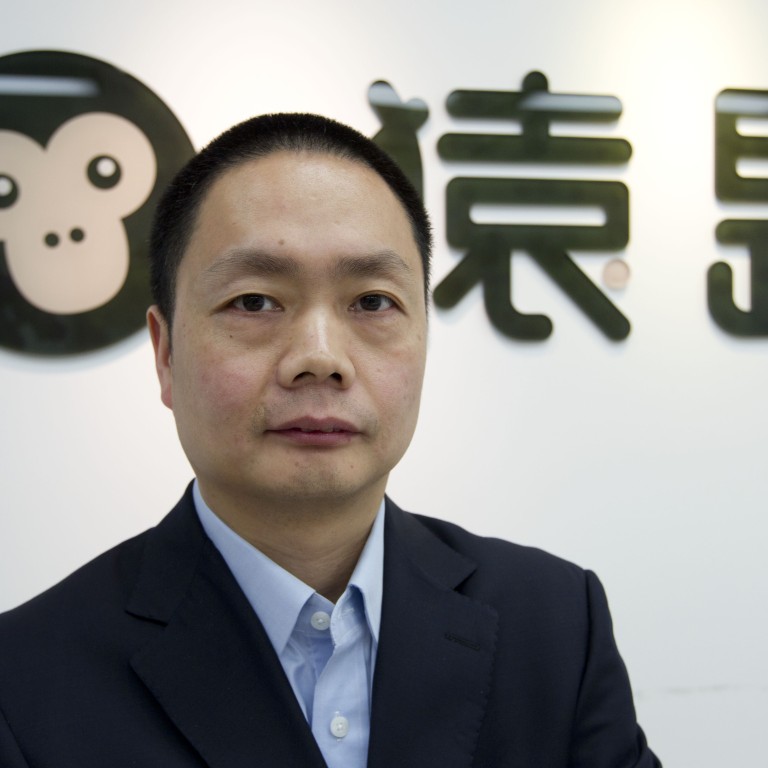
How education app Yuantiku found success with China's young test-taking 'robots'
China's educational system has long been a controversial topic with some critics saying the current exam-focused model turns students into "test robots".
One new app takes advantage of this focus however, aggregating hundreds of thousands of exercises for millions of students across the country.
"More than 13 million Chinese junior middle and high school students use our app for studying," Li Yong, founder and chief executive of mainland China's leading education site Yuantiku.com, told the South China Morning Post.
Li, 41, founded the company in April 2012 after working as a senior editor for the influential magazine Southern Weekly and chief editor of news portal NetEase portal for more than a decade. He now sets an example for China's media elite that they can be just as successful in start-ups.
This week, Yuantiku closed a US$60 million funding round, and its market value is estimated to be upwards of US$360 million, according to company data.
Online education has become a huge market in China, surpassing 82 billion yuan last year, according to a report by analyst firm CCW Research.
Before launching his current company, Li found success with Fenbi, a similar service which focused on providing exercises for the more than one million people in China who take the public service exams every year. The company raised more than US$7 million in funding in 2013.
“Obviously, there was a much larger market of Chinese middle school students. But we weren’t sure how many of them use mobile phones,” Li said.
In 2013, the team began market testing high school students in Guangdong by providing them a free app to help them practice for college entrance exams, an early version of what is now Yuantiku.
“To our surprise, a large number of students downloaded our app,” he said.
The real challenge was still ahead, Li's team found that there was no existing standard for organising the millions of practice exercises put out by publications across China.
This made it hard to provide comprehensive analysis and standardised evaluation of students' answers. Among China's 34 provinces, "standard" tests may differ widely and what is relevant to some students might be useless to others.
“What we’ve done, which others didn’t, is to build a giant database of exercises and standardise them. We’ve invested heavily in research and development,” Li said.
About two thirds of the company’s 120 staff are dedicated to R&D, preparing 406,000 exercises for all grades of middle school and high school.
Additionally, leading researchers and engineers are hired to develop deep learning and artificial intelligence methods which are adopted in the app’s key features such as Xiaoyuan Souti or "little ape" search, and Yuanfudao or "ape teaching" assistance.
Since the app has taken off, Li has had to face public debate of whether what he does is helping to feed a negative education culture among Chinese students and failing to help them learn anything but how to take tests.
"I admit that there are problems in our current system. But I think the way for students to learn and comprehend knowledge from multiple practices is not bad at all,” he said.
He added that it’s more practical for the government and school to mobilise resources and introduce programs that focus on students’ personality building.
Yuantiku still has much room to grow. Li hopes that in the next three years the company will occupy more than 60 per cent of the online education market, serving an estimated 70 million students across China.
The company will also have to come up with an effective monetisation strategy. At present, most features of Yuantiku are free. While users pay for Yuanfudao, the in-app teaching assistant, the firm has to employ teachers to answer questions and give advice, making profit margins tight.

